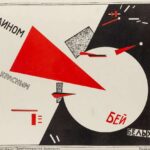Earlier today, student Caroline Brawley published a piece in the Furman student newspaper advocating in favor of abstaining in the Israel-Palestine Referendum the student body will be voting on tomorrow, April 18th. As a recent alumni and ardent supporter of the Ceasefire Now! resolution the referendum concerns, I want to present a few criticism of Brawley’s arguments, which I believe to be flawed at best and unjust at worst.
Firstly, on Brawley’s concerns over the use of the term “genocide” by students (and potentially the university itself) to describe the ongoing genocide in Gaza. Brawley’s argument essentially boils down to two ideas: (1) that referring to the genocide as a genocide is an appeal to emotion (which is a bad thing) and (2) use of the term is best left to the experts. She is quite right on the first point. The word “genocide” does evoke an emotional response. As it should.
Genocide is a horrific process, and genocidal acts are appalling to our basic sense of humanity. The emotions evoked by seeing a genocide play out in real-time count for something. They aren’t cheap, and provoking them is not somehow exploitative. Our outrage and heartbrokenness keep us in touch with our sense of humanity and build the foundation for felt solidarity. Thus the importance of appeals to emotion in times such as these: they keep us honest with the horrors our leaders—using our money and our labor—inflict upon the oppressed.
The “leave it to the experts” argument is no better than the argument against emotional appeals. The very fact that the word genocide evokes an emotional response while also being a highly plausible—in my view, entirely accurate—description of the situation means that it is a powerful tool in the hands of non-experts in the battle against the mass extermination of oppressed peoples, including the people of Palestine.
Besides, if this was happening anywhere else—such as in Ukraine—we would all much more readily accept the term genocide being used. It would pose less risk to our sense of security (and our coffers, and our careers). As one Twitter user satirically put it: “the middle east is complicated because its bad to support smothering orphans in hell fire but I also really want to graduate Harvard.”
Back again to the question of emotional appeals. Brawley claims that it is wrong to imply that voting “No” for the resolution means being “for” genocide. I disagree. Before I say anything further, I must clarify that my opinion here does not necessarily represent that of the YDSA as a whole, nor that of MENA or the EAG. As far as I am concerned, it is a straightforward and indisputable fact that professing neutrality in the face of genocide is to work in favor of genocide.
I would draw a parallel to Ibram X. Kendi’s argument about racism: you’re either an anti-racist or a racist, you can’t be non-racist. Professed neutrality in the face of a status-quo of profound injustice is complicity because it allows that profound injustice to continue uninterrupted.
Thankfully, just as racists can become anti-racists by standing up against racism, anyone complicit in the desecration of Palestine can at any point join the struggle against it, ending their complicity. Even small actions help—anything, anything to slow the deadly march of the Israeli occupiers and their American accomplices.
Brawley is right to point to fundraising to help Palestinians evacuate from Gaza as a way to act against the genocide—these fundraising activities are noble and important. The YDSA, MENA, and EAG, as well as our numerous unaffiliated supporters, are also right to take up the battle for denunciation, disclosure, and divestment, as another way to act against the genocide. Divestment, especially, has long played a key role as a source of non-violent resistance to oppression.
The classic model for divestment by American universities is that of divestment from apartheid South Africa. At the peak of the divestment movement, universities throughout the U.S. took steps—under heavy pressure from students, faculty, and staff—to divest from South African firms and other economic contributors to apartheid. This is the model for the contemporary boycott, divestment, and sanctions movement against apartheid Israel. If anyone at Furman tells you divestment is impossible or unprecedented, they are lying to you.
Now, what about the Study Away element of divestment? Contra Brawley’s argument, the real issue at hand with Study Away is not “experiences” for Furman students. This is a missionary mindset that readily shades over to poverty and oppression tourism. Palestine is not a living museum built for visitors from the imperial core.
The real issue at hand is the Study Away program’s material contribution, on the institutional level, to the oppression of the Palestinian people. Engaging directly with Palestinians, while valuable, does not negate or make up for this overarching fact of the matter. It is, as they say, simple economics.
Cancelling Study Away programs to apartheid South Africa may have led to fewer opportunities for students to see first-hand the violences of white supremacy and the cultures of the indigenous peoples. You know what else it, as part of the divestment movement as a whole, accomplished? Weakening the economic base of apartheid and accelerating the collapse of the apartheid system.
Brawley, following Furman VP for Finance and Administration Susan Maddux, argues that disclosure is unlikely, and would be an expensive and time-consuming process requiring jumping many hurdles. Divestment would be even more difficult, in all likelihood. I would add another concern, that I have no doubt many in administration share: it may even lose Furman some money—God forbid! I forgot that justice and accountability were supposed to be easy!
Generations of Palestinians have remained steadfast through nearly a century of settler-colonial domination and dispossession. Surely, given that, Furman’s administrators are up to the task of doing their part from the comfort and safety of their offices and conference rooms. If they aren’t? Shame on them.
In conclusion: let us join university student bodies across the United States in fighting for ceasefire, disclosure, and divestment. VOTE YES!




Leave a Reply